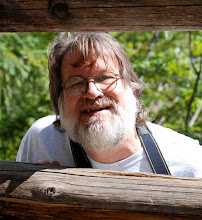Peter Jennings Just Morphed
As a social designer, I often like to think about how the world would be if we lived by different rules than the norm. What would happen if we changed some of the major rules that the majority of us agree to play by?
For example, millions of Americans have had near-death experiences where they stepped outside of their bodies, often during a near-fatal accident or surgery, and suddenly found themselves standing in a whole new existence. Yet since these are largely subjective and unverifiable experiences, they never make the news.
I have always wondered what would happen to the social fabric of our land if NDEs were reported on the news. How would it change things if we got a more balanced view of the death experience?
As it is, if you watch the news objectively, closely observing the language and the content, you would see that it continually shapes a vision of death as tragic and death as finality. Many people would go, “Well, yeah, death is tragic and death is final.”
But those millions of people who have experienced otherwise do not have a voice.
Peter Jennings just died.
I am amazed thinking about what he could have done with this story. I think about the first time he discovered that he beat death even though he died. What would that be like for a guy who spent the majority of his life reporting the news, much of which is about death? And how would he feel suddenly discovering that death as we have always thought of it in mainstream media is not how we always thought of it.
If death doesn’t truly kill us, it changes everything. It means that many paradigms driving our material culture are as dead wrong as when everyone thought Earth was pancake flat.
As a media culture, we dote on graphic details of fatal car wrecks, plane crashes, and murders, but ironically we seldom publicly ponder what happens next to the victims who died. The news media assume flatline oblivion and focus mostly on the gore of the exit scenes.
Today we launched a $720 million mission to Mars. We are still anxious to discover if that planet could have supported life.
But we won’t seriously investigate—despite growing anecdotal evidence—whether or not souls survive death, and if they do, what that means to our bottom line. The ruling media culture generally defines those who ponder the afterlife as escapists trying to avoid a harsh reality by making up stories of gossamer-winged froufrou.
According to the International Association of Near-Death Studies (IANDS), over 11 million Americans remember leaving their bodies as they approached death—that ultimately did not occur. Many were even clinically dead before being resuscitated. Still, mainstream society thinks it’s more okay to scientifically fantasize about the origin of life on Mars than to fantasize similarly about life after so-called death here at home. And reincarnation? Phooey!
I like wondering about the huge social impact that would occur if someone ever proved beyond that proverbial shadow of doubt that souls survive death. A whole paradigm shift in news and entertainment would await us.
It would be harder to feel the wrenching impact of crime shows if murder, instead of someone’s end, actually meant a ticket to paradise. If villains and heroes became conscious of creating their next-life futures through their current-life actions, they might all choose to be more heroic. Win-win.
Our news and most social institutions portray death as tragic. Clearly, anyone in grief knows the depth of personal loss. However, anyone who has emerged from a near-death experience or received intimate proof of soul survival doesn’t buy the death myth anymore. Suddenly they embrace a different reality.
Many people think that speculating on an afterlife as a religious issue. I think of it as studying nature—human nature. If there’s more to human nature than termination for whom the final bell tolls, I want to know about it. I want to see the big plasma screen HDTV picture.


1 Comments:
I like wondering about the huge social impact that would occur if someone ever proved beyond that proverbial shadow of doubt that souls survive death. ...
This HAS been proven beyond a "proverbial shadow of doubt",...and, as in everything, some chose to believe in the "otherdimensional truth", and some do not. The great "SPIN"...one might say. As in anything and everything. The trick is caring enough about one's personal and universal truth to create andd surround oneself by choice with other like minded souls.who may agree with, or resonate with these ways of creating one's path,... and for the most part aspire to and act in such a way that "paying it forward" is really where it's at! Like your blogging...Thank You.
Post a Comment
<< Home